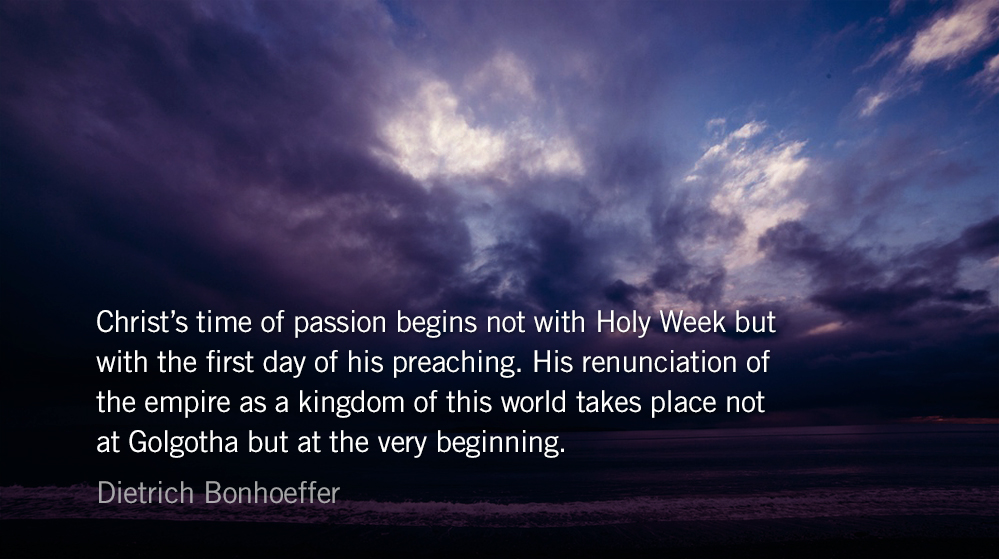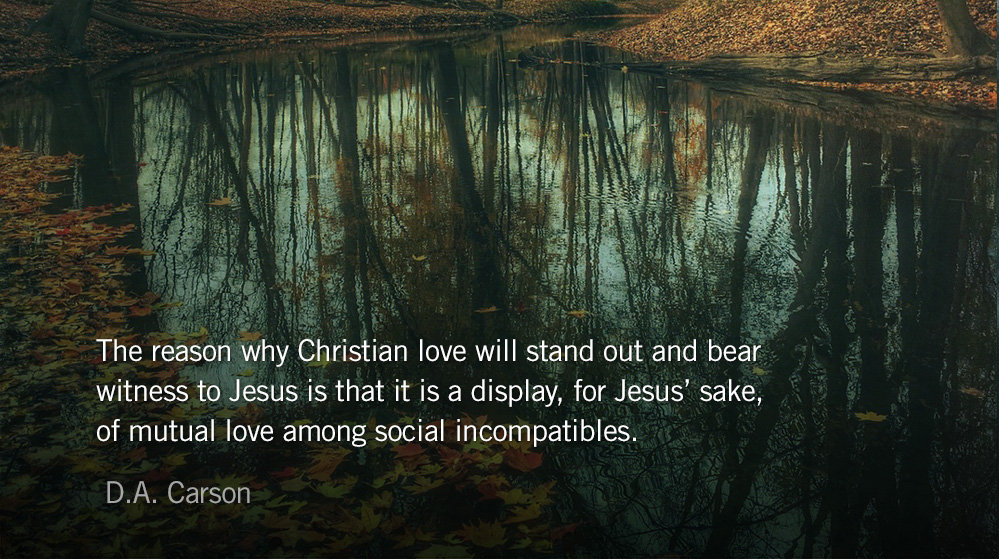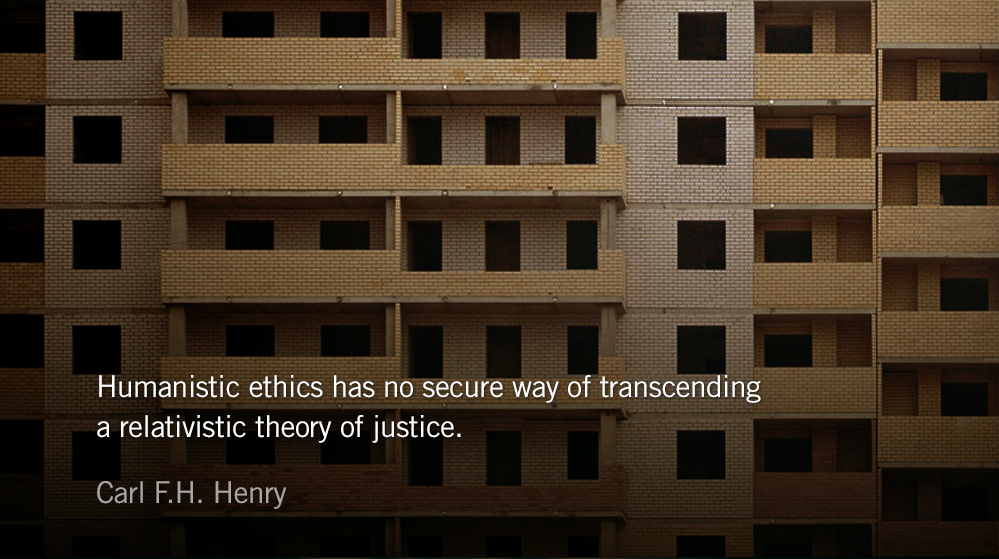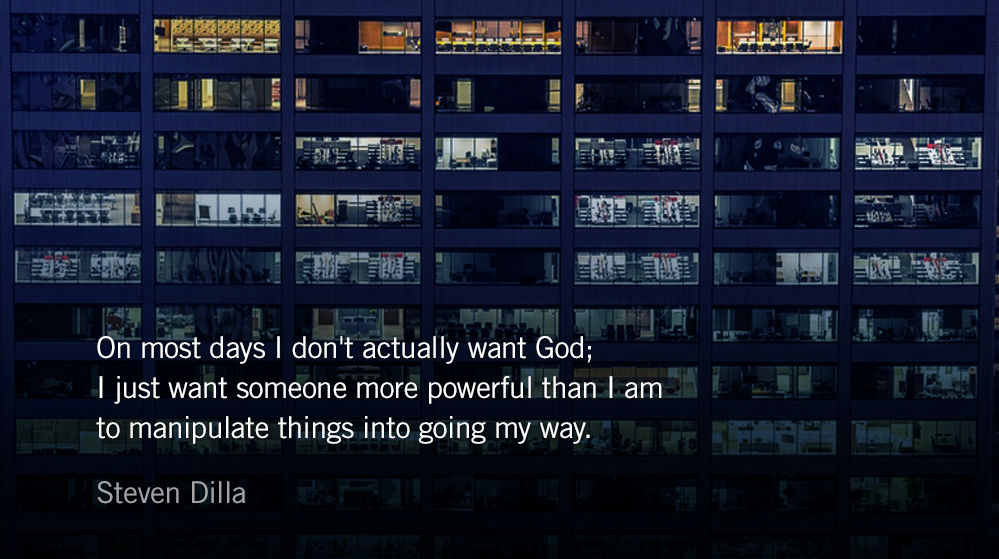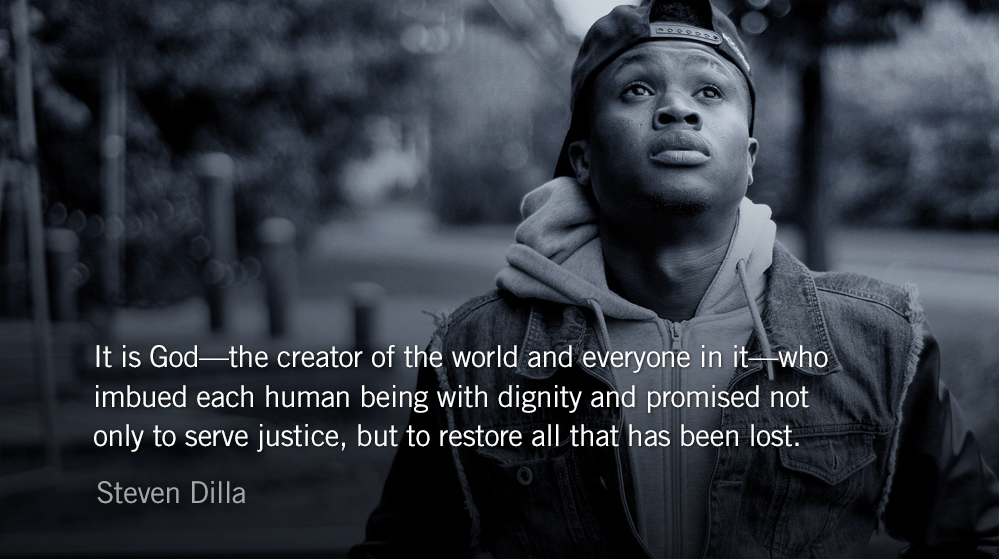Bonhoeffer’s Lenten Prayer brought to mind a poem in a favorite book, A Severe Mercy, by Sheldon Vanauken. The poem was written by a Catholic priest named Dom. Julian Stead, who was at the time dying of cancer:
If everything is lost, thanks be to God
If I must see it go, watch it go,
Watch it fade away, die
Thanks be to God that He is all I have
And if I have Him not, I have nothing at all
Nothing at all, only a farewell to the wind
Farewell to the grey sky
Goodbye, God be with you evening October sky.
If all is lost, thanks be to God,
For He is He, and I, I am only I.
— Greg
Readers’ Choice (Originally published February 24, 2016)
“Christ’s time of passion begins not with Holy Week but with the first day of his preaching,” wrote Dietrich Bonhoeffer. “His renunciation of the empire as a kingdom of this world takes place not at Golgotha but at the very beginning.”
Jesus could have been Lord of this world. As the Messiah the Jews had dreamed of, he could have freed Israel and led it to fame and honor. He is a remarkable man, who is offered dominion over the world even before the beginning of his ministry. And it is even more remarkable that he turns down this offer. He knows that for this dominion he would have to pay a price that is too high for him. It would come at the cost of obedience to God’s will.
“Worship the Lord your God, and serve only him” (Luke 4:8). Jesus knows what that means. It means lowliness, abuse, persecution. It means remaining misunderstood. It means hate, death, the cross. And he chooses this way from the beginning. It is the way of obedience and the way of freedom, for it is the way of God. And therefore it is also the way of love for human beings.
I Cannot Do This AloneO God, early in the morning I cry to you.Help me to prayAnd to concentrate my thoughts on you;I cannot do this alone.In me there is darkness,But with you there is light;I am lonely, but you do not leave me;I am feeble in heart, but with you there is help;I am restless, but with you there is peace.In me there is bitterness, but with you there is patience;I do not understand your ways,But you know the way for me….Restore me to liberty,And enable me to live nowThat I may answer before you and before men.Lord whatever this day may bring,Your name be praised.Amen
Today’s Reading
Lamentations 2 (Listen – 4:55)
Psalm 33 (Listen – 2:08)
Submit a devotional for Readers’ Choice
Contribute your favorite Park Forum devotionals to Readers’ Choice.
Email me the title or link. If you don’t mind adding a sentence or two as to why each post was significant to you, I would love to include your voice as well.
Thanks for being part of The Park Forum community. We are so thankful to be part of your devotional rhythm.

